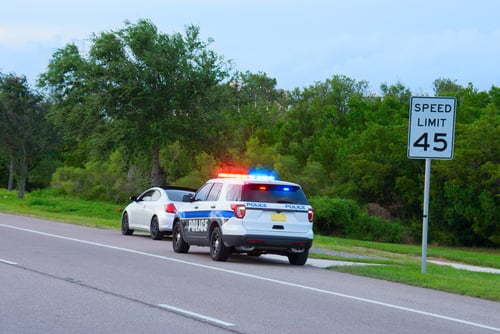
You may have heard the phrase, “Driving is a privilege, not a right.” A person must obtain a driver’s license before he or she can legally operate a motor vehicle on Illinois roadways. The privilege of driving is earned by passing a Department of Motor Vehicles (DMV) test and agreeing to follow the rules of the road. If drivers do not obey these regulations, the Secretary of State can take away their driving privileges by suspending or revoking their license. In Illinois, traffic violations are usually categorized as “petty” or “misdemeanor” offenses. Depending on the alleged violation, a driver may be able to fight the ticket and have the charges dismissed altogether.
Common Types of Traffic Violations
Disobeying traffic laws can result in serious consequences due to the danger it poses to other drivers or pedestrians on the road. For this reason, law enforcement officers patrol the highways in an effort to prevent accidents due to reckless or negligent driving habits. Depending on the circumstances, a police officer can issue a ticket to a driver who violates these rules.
Some of the typical traffic violations include but are not limited to the following:
- Failure to obey a stop sign
- Traveling faster than the posted speed limit
- Lane change violations (failure to signal or crossing over no passing lanes)
- Not stopping for a school bus when children are boarding or exiting
- Speeding through a construction zone
- Failure to yield to an emergency vehicle
- Running a red light
- Failure to provide proof of auto insurance
- Texting while driving
How Can I Fight a Traffic Ticket?
In some cases, traffic violations can be settled without going to court. These involve situations where the driver pays the required fine while admitting guilt for the offense. However, this option usually results in a conviction, which will add “points” to the driver’s record. Accumulating too many points could result in the suspension of one’s driver’s license.
If a traffic ticket indicates that a driver does not have to appear in court, he or she typically has three options:
- Plead guilty, pay the fine without a court appearance, and a conviction will be on record.
- Plead guilty and ask for court supervision, pay the designated fine, and attend traffic school. During the period of supervision, no further offenses can be committed, or more serious consequences could be imposed.
- Plead not guilty and request a trial.
If you do plan to fight a traffic ticket, hiring an attorney to represent you is essential for maintaining or reinstating your driving privileges. A skilled criminal defense lawyer can review the details of your traffic stop and determine whether your rights were violated. He or she can also negotiate to reduce or dismiss your charges.
Contact a Wheaton Traffic Violation Lawyer
Receiving a traffic ticket may not seem like a big deal to some motorists. However, subsequent offenses can significantly impact a driver’s life, resulting in steep fines or even time behind bars, depending on the circumstances of the case. At Anderson Attorneys & Advisors, we have handled numerous types of traffic offenses and represented clients to achieve favorable outcomes. If you or someone you know is trying to avoid the serious consequences of a traffic violation, you need skilled legal counsel. Our dedicated DuPage County traffic ticket defense attorneys will build a solid defense on your behalf so you can keep your driving privileges intact. Call our office today at 630-877-5800 to schedule your free consultation.
Source:
http://www.ilga.gov/legislation/ilcs/fulltext.asp?DocName=062500050K11-208.3

